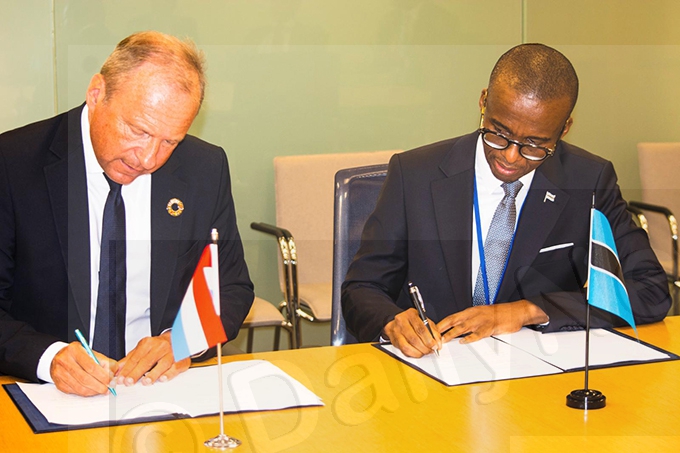BOTSAT-1 launch paves way for innovation
06 Mar 2025
In its journey of many firsts as it navigates the diverse intricacies of the 4th Industrial Revolution, Botswana’s launch of it's first satellite into space will go down in history.
Space technology is relatively a new phenomenon for this small nation of 2.5 million people, but for young, agile and imaginative minds, this is beyond revolutionary.
A genuine criticism might emerge about the rationale for investing in space technology when basic needs such as infrastructure, food and healthcare needs are not yet fully met.
While some of these concerns are reasonable, in reality investing in space technology is a strategic approach to driving development, with cross-cutting benefits which will have a spill over effect and ultimately position the country for even greater things.
According to Botswana International University of Science and Technology (BIUST) vice chancellor, Professor Otlogetswe Totolo who leads a team of engineers and scientists working as architects of BOTSAT -1 innovation, owning a satellite presents an opportunity which will redefine Botswana’s development landscape.
He says a satellite is a strategic investment into the country’s future, one which will act as a vehicle to driving economic growth, innovation and progress.
Prof. Totolo is of the view that owning a satellite as a country is no longer a fanciful dream. He asserts that a satellite has more economic benefits that can turn around the economy of the country and leapfrog Botswana towards traditional development pathways.
“Satellite technology has potential to generate significant economic returns through harnessing the power of space technology,” he said.
Practical benefits for Batswana through BOTSAT-1, he says, include enhancing agriculture (crop monitoring).
“By leveraging the use of satellite images, farmers and policy makers will be in a position to improve agriculture as data from satellite will help farmers to monitor crop health, detect pests and improve yields,” he said.
Furthermore, space data is beneficial for a country like Botswana where ordinary Batswana thrive on agriculture which is also one of the critical mainstays of her economy.
Prof. Totolo further said information from satellite would enhance mining operations by providing high-resolution geological data for exploration and sustainability.
For a country whose economy relies on minerals, the imaging capabilities of the satellite will enable identification of mineral resources which is a progressive component of Botswana’s extractive industries.
The benefits of having BOTSAT-1 will also improve urban planning and infrastructure by offering a detailed land-use analysis. Access to satellite data and imagery would enable policy makers to make sound decisions on land use and management .
Additionally, satellite technologies will also enable the country to prepare for disaster management through real-time data essential for environmental monitoring of floods, droughts, wildfires and other potential threats to the environment .
Experts also say other spillover effects of owning a satellite include fostering a culture of innovation and new experiments, driving and creating new business opportunities, jobs and industries.
Moreover, it also opens up a window of opportunity for institutions of learning to advance their space science, and engineering curriculum to afford students even more opportunity to learn and tap into the space industry.
This in turn would diversify the economy, reduce dependency on traditional sectors of the economy as start-ups would use precise information for their businesses. ENDS
Source : BOPA
Author : Mmoniemang Motsamai
Location : Los Angeles, California
Event : Interview
Date : 06 Mar 2025
Related News
28 Apr 2025
SADCOPAC strategic partner
28 Apr 2025
Botswana to reposition as catalyst for trade
26 Apr 2025






